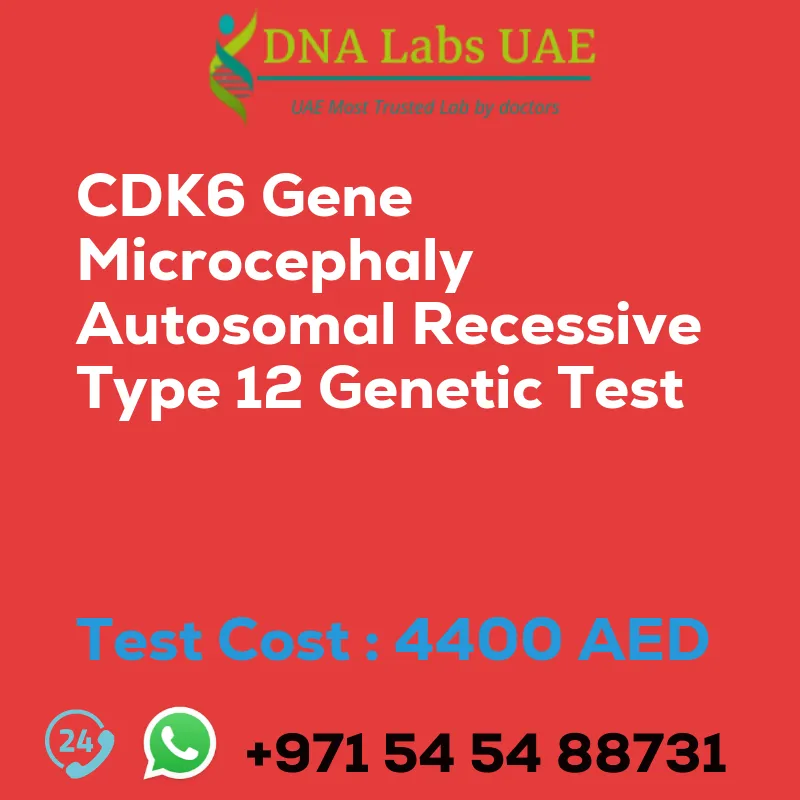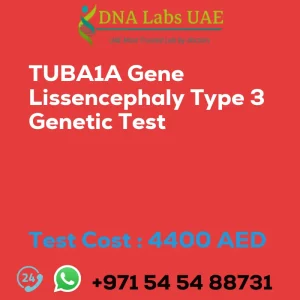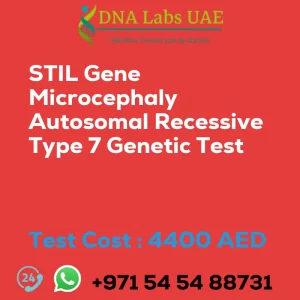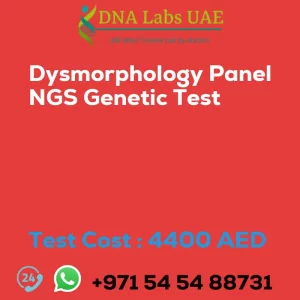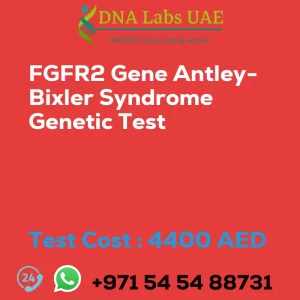CDK6 Gene Microcephaly Autosomal Recessive Type 12 Genetic Test
At DNA Labs UAE, we offer the CDK6 Gene Microcephaly Autosomal Recessive Type 12 Genetic Test. This test is designed to diagnose individuals suspected of having CDK6 gene microcephaly, autosomal recessive type 12, a specific type of microcephaly caused by mutations in the CDK6 gene.
Test Components
- Test Name: CDK6 Gene Microcephaly Autosomal Recessive Type 12 Genetic Test
- Price: 4400.0 AED
- Sample Condition: Blood or Extracted DNA or One drop Blood on FTA Card
- Report Delivery: 3 to 4 Weeks
- Method: NGS Technology
- Test Type: Dysmorphology
- Doctor: Pediatrics
- Test Department: Genetics
Pre Test Information
Before undergoing the CDK6 Gene Microcephaly Autosomal Recessive Type 12 Genetic Test, it is important to provide the clinical history of the patient. Additionally, a genetic counseling session may be conducted to draw a pedigree chart of family members affected by CDK6 Gene Microcephaly Autosomal Recessive Type 12 NGS Genetic DNA Test gene CDK6.
Test Details
CDK6 gene microcephaly, autosomal recessive type 12 is a specific type of microcephaly characterized by an abnormally small head size. It is often associated with intellectual disability and developmental delays. NGS (Next-Generation Sequencing) genetic testing is used to analyze multiple genes simultaneously. In the case of CDK6 gene microcephaly, autosomal recessive type 12, NGS genetic testing involves sequencing the CDK6 gene to identify any mutations or changes that may be causing the condition.
NGS genetic testing is useful for providing a definitive diagnosis for individuals suspected of having CDK6 gene microcephaly, autosomal recessive type 12. It can also be used for carrier testing in families with a history of the condition, allowing individuals to determine if they carry a mutation in the CDK6 gene.
The results of NGS genetic testing can provide important information, including a better understanding of the cause of the condition, the likelihood of passing it on to future children, and potential treatment options or management strategies. It is recommended to consult with a healthcare professional or genetic counselor to fully understand the implications of the test results and to discuss any further steps or considerations.
| Test Name | CDK6 Gene Microcephaly autosomal recessive type 12 Genetic Test |
|---|---|
| Components | |
| Price | 4400.0 AED |
| Sample Condition | Blood or Extracted DNA or One drop Blood on FTA Card |
| Report Delivery | 3 to 4 Weeks |
| Method | NGS Technology |
| Test type | Dysmorphology |
| Doctor | Pediatrics |
| Test Department: | Genetics |
| Pre Test Information | Clinical History of Patient who is going for CDK6 Gene Microcephaly, autosomal recessive type 12 NGS Genetic DNA Test. A Genetic Counselling session to draw a pedigree chart of family members affected with CDK6 Gene Microcephaly, autosomal recessive type 12 NGS Genetic DNA Test gene CDK6 |
| Test Details |
CDK6 gene microcephaly, autosomal recessive type 12 is a specific type of microcephaly that is caused by mutations in the CDK6 gene. Microcephaly is a condition characterized by an abnormally small head size and is often associated with intellectual disability and developmental delays. NGS (Next-Generation Sequencing) genetic testing is a type of genetic testing that uses advanced technology to analyze multiple genes simultaneously. In the case of CDK6 gene microcephaly, autosomal recessive type 12, NGS genetic testing would involve sequencing the CDK6 gene to identify any mutations or changes in the gene that may be causing the condition. NGS genetic testing can help provide a definitive diagnosis for individuals suspected of having CDK6 gene microcephaly, autosomal recessive type 12. It can also be used for carrier testing in families with a history of the condition, allowing individuals to determine if they carry a mutation in the CDK6 gene. The results of NGS genetic testing can provide important information for individuals and their families, including a better understanding of the cause of the condition, the likelihood of passing it on to future children, and potential treatment options or management strategies. It is important to consult with a healthcare professional or genetic counselor to fully understand the implications of the test results and to discuss any further steps or considerations. |

